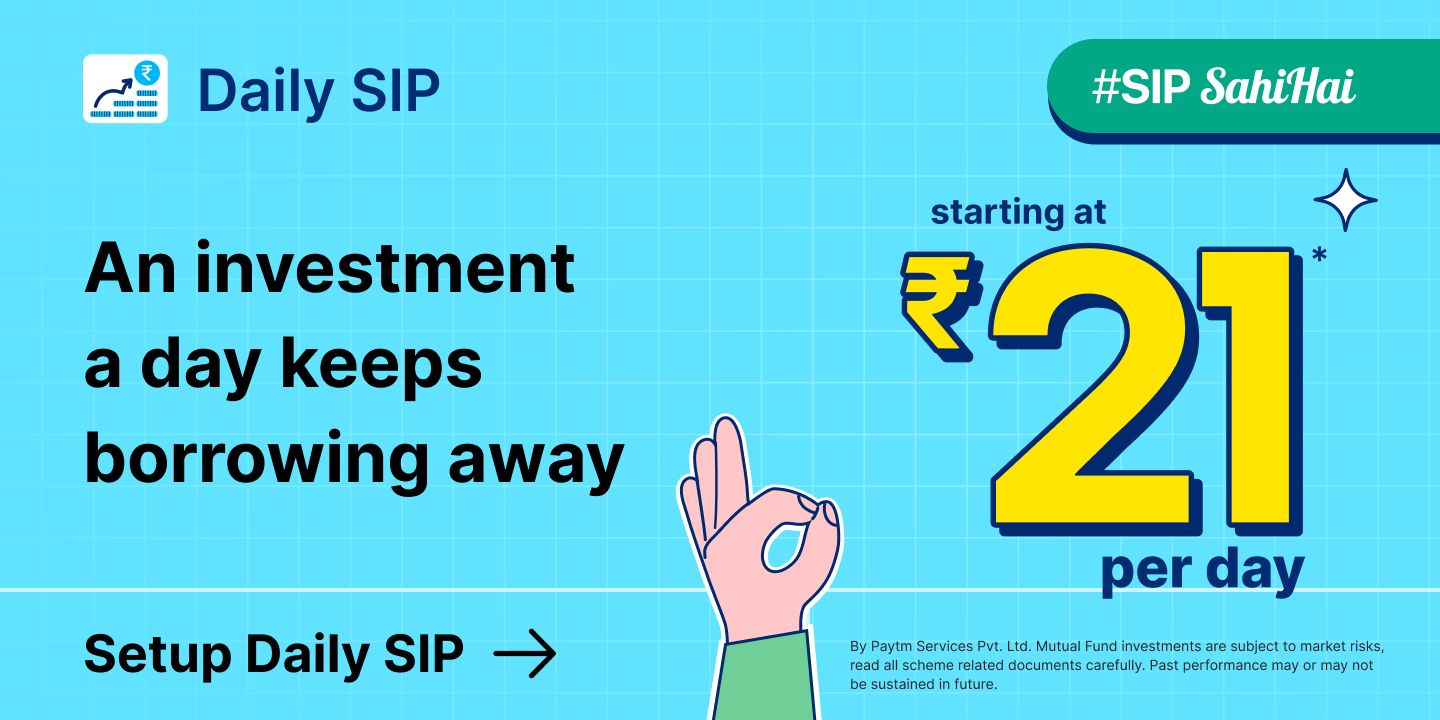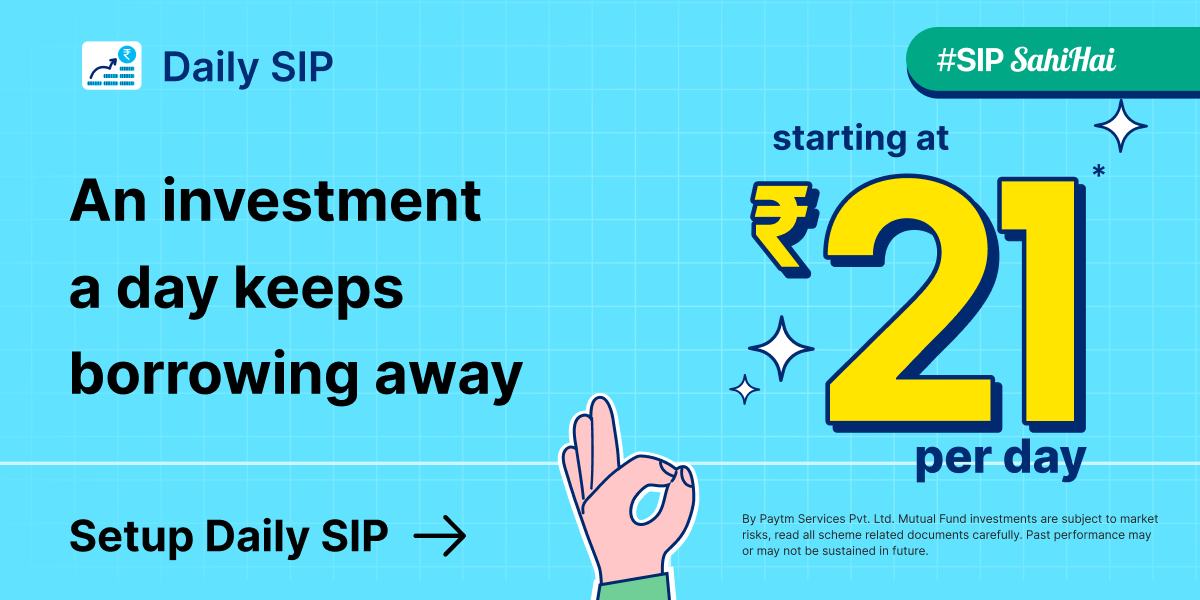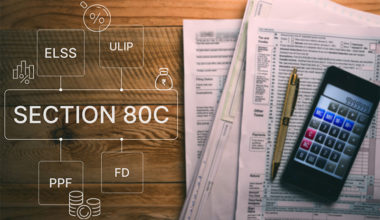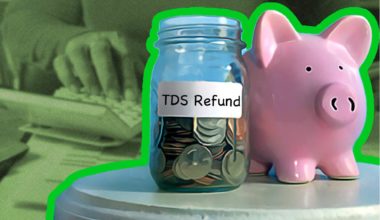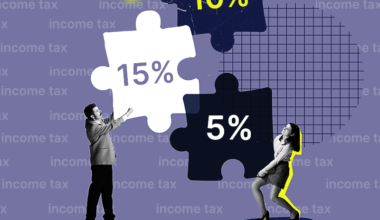Advance Tax is a system of paying income tax in India. It is a mechanism through which taxpayers are required to estimate their tax liability and make installment payments of the estimated tax liability during the financial year, rather than paying the entire tax amount in one lump sum at the end of the year.
In this blog, we will learn more about the Indian advance tax payment system, its due date, and how to calculate it.
What is Advance Tax?
Under the advance tax system, individuals, self-employed professionals, and businesses are required to pay their tax liability in installments on specific due dates, which are generally spread across the financial year. The advance tax due dates are determined by the Income Tax Department and may vary based on the type of taxpayer.
Advance tax applies to individuals and entities whose tax liability for the financial year is expected to exceed Rs. 10,000 (as per the current threshold). The estimated tax liability is based on the taxpayer’s projected income from various sources, such as salary, business profits, capital gains, and other taxable income.
The advance tax liability is calculated by estimating the total income for the financial year and applying the applicable tax rates to arrive at the tax amount. The taxpayer then needs to pay the advance tax in installments as per the prescribed due dates. You have certain dates by which you need to pay parts of your taxes. By June 15th, you should pay at least 15% of your total tax amount. By September 15th, it’s 45%, by December 15th, it’s 75%, and by March 15th, you need to pay the full amount. The exact payment for each date depends on whether you’re an individual taxpayer, company, or other category. If your income estimate changes during the year, you can adjust the amount you must pay in advance taxes accordingly.
Failing to pay advance tax or underpaying the required amount may attract penalties and interest charges imposed by the Income Tax Department. However, senior citizens who do not have income from business or profession are exempt from paying advance tax and can pay the entire tax liability at the time of filing their income tax returns.
Features of Advance Tax Payment
The features of advance tax payment in India include:
- Installment payments: Advance tax is paid in installments rather than as a lump sum at the end of the financial year. Taxpayers estimate their tax liability and make installment payments accordingly.
- Due dates: The advance tax payments are required to be made on specific due dates as prescribed by the Income Tax Department. These advance tax due dates are usually spread throughout the financial year.
- Calculation based on estimated income: Taxpayers are required to estimate their total income for the financial year and calculate their tax liability based on the applicable tax rates. The advance tax amount is determined using this estimated income.
- Multiple payment deadlines: Generally, advance tax payments are made in four installments, with due dates falling in June, September, December, and March. The payment schedule may vary depending on the type of taxpayer.
- Penalty for non-compliance: Failing to pay advance tax or underpaying the required amount may attract penalties and interest charges imposed by the Income Tax Department. It is essential to meet the prescribed payment obligations to avoid such penalties.
- Exemptions: Certain individuals, such as senior citizens who do not have income from business or profession, are exempt from the requirement of paying advance tax. They can pay the entire tax liability at the time of filing their income tax returns.
- Online payment facility: The Income Tax Department provides online platforms and electronic payment methods to facilitate the payment of advance tax. Taxpayers can make their payments through Internet banking, credit/debit cards, or other online modes.
- Adjustments and refunds: If a taxpayer has overestimated or underpaid their advance tax liability, adjustments can be made in subsequent installments or at the time of filing the final tax return. Any excess payment made can be claimed as a refund.
Who Should Pay Advance Tax?
Advance tax in India is applicable to individuals, professionals, and businesses whose estimated tax liability for the financial year exceeds Rs. 10,000. Here are the categories of taxpayers who are required to pay advance tax:
- Salaried individuals, freelancers, and businesses: If your total tax liability during a financial year is Rs 10,000 or more, you are required to pay advance tax. This rule is applicable to all types of taxpayers, including those who are salaried, freelancers, or involved in business activities.
- Senior citizens: Individuals aged 60 years or older, who do not engage in business activities, are exempt from advance tax payments. Therefore, only senior citizens of 60 years or more with business income are obligated to pay advance tax.
- Presumptive income for businesses: Taxpayers who have opted for the presumptive taxation scheme under section 44AD are mandated to pay their entire advance tax amount in a single installment on or before 15 March. Alternatively, they have the flexibility to clear their entire tax liability by 31 March.
- Presumptive income for professionals: Independent professionals, such as doctors, lawyers, architects, etc., fall under the presumptive scheme outlined in section 44ADA. They are required to pay their complete advance tax liability in a single installment on or before 15 March. Alternatively, they also have the option to settle the full tax amount by 31 March.
How to Calculate Advance Tax?
To calculate advance tax in India, follow these steps:
- Estimate your total income: Determine your projected total income for the financial year from all sources, including salary, business or professional income, capital gains, rental income, and other taxable income.
- Deduct eligible deductions: Subtract any eligible deductions and exemptions under the Income Tax Act, such as deductions under Section 80C, 80D, or other applicable sections. These deductions can reduce your taxable income.
- Calculate taxable income: Subtract the deductions from your estimated total income to arrive at the taxable income. This is the income on which you will calculate your advance tax liability.
- Apply the applicable tax rates: Refer to the income tax slabs and rates applicable for the relevant financial year to determine the tax liability based on your income. The tax rates may vary based on the individual’s age, income slab, and residential status.
- Consider any applicable surcharges and cess: Depending on your income level, there may be additional surcharges or cess applicable to your tax liability. Factor in these additional charges while calculating the advance tax amount.
- Determine the advance tax installments: The advance tax payments are generally made in four installments. Calculate the due amount for each installment by dividing the total estimated tax liability for the financial year by four.
- Pay the advance tax installments: Pay each installment’s calculated advance tax amount on the specified due dates. The due dates can be obtained from the Income Tax Department’s official website or through tax-related resources.
- Adjustments and final settlement: If there are any changes in your estimated income or tax liability during the financial year, you can make adjustments in subsequent advance tax installments. Ensure that the final tax liability is paid and any excess payment is claimed as a refund at the time of filing your income tax return.
| Advance Tax Due Date | Advance Tax Liability Payable | Advance Tax Payable (Rs.) | Amount Already Paid (Rs.) | Balance To Be Paid |
| 15th June | 15% | 15,000 | Nil | 15,000 |
| 15th September | 45% | 45,000 | 15,000 | 30,000 |
| 15th December | 75% | 75,000 | 45,000 | 30,000 |
| 15th March | 100% | 1,00,000 | 75,000 | 25,000 |
| Total Amount Paid | 1,00,000 |
To calculate your advance tax liability, you need to estimate your total income for the year. Consider the income received, tax deducted at source, and investments made. The tax is then calculated based on this estimated total income. No need to provide proof of your projections to the Income Tax Department!
Example for Advance Tax Calculation
Ms. A is employed in a company and also works as a freelancer. Her salary income amounts to 10 lakh rupees before any deductions or exemptions. From her freelancing work, she receives net receipts of approximately Rs. 10 lakh after deducting expenses. Ms. A invests 1.5 lakh rupees in Public Provident Fund (PPF) and pays 25,000 rupees for her medical insurance. Additionally, she earns 15,000 rupees as interest on her fixed deposits. Her employer has already deducted TDS of Rs. 100,000 for her salary income. Based on these details, her final calculation and advance tax liability are as follows:
| Income Estimate | Amount in Rs. | Amount in Rs. |
| Income from Salary | 1,000,000 | |
| Less: Standard deduction | 50,000 | |
| Income from Salary | 950,000 | |
| Income from Profession | 1,000,000 | |
| Income from other source | 15,000 | |
| Gross Total Income | 1,965,000 | |
| Deductions under Chapter VIA | ||
| 80C | 150,000 | |
| 80D | 25,000 | |
| Total Deductions | 175,000 | |
| Total Income | 1,790,000 | |
| Tax Payable as per OLD Regime | 349,500 | |
| Education cess | 13,980 | |
| Total Tax Liability | 363,480 | |
| TDS deducted | 100,000 | |
| Tax Payable as Advance Tax | 263,480 | |
The above table provides a breakdown of Preeti’s income and tax liability calculations. It includes her income from salary, profession, and other sources. Deductions under Chapter VIA, such as 80C and 80D, are also taken into account. The table shows the total income, tax payable as per the old tax regime, education cess, total tax liability, TDS deducted, and the tax payable as advance tax.
| Due Date | Advance Tax Payable | Advance Tax |
| 15th June | 15% of advance tax liability | 39,522 |
| 15th September | 45% of Advance tax liability | 79,044 |
| 15th December | 75% of Advance Tax Liability | 79,044 |
| 15th March | 100% of Advance tax Liability | 65,870 |
The table above presents the due dates for advance tax payments and the corresponding amount payable. The advance tax payable is calculated as a percentage of the advance tax liability. The amounts for each due date are provided in the table.
How to Pay Advance Tax Online?
Follow these steps about how to pay advance tax online-
- Navigate to the official e-filing portal of the Income Tax Department of India.
- Locate the ‘Quick Links’ section on the left-hand side of the homepage. Click on the ‘e-Pay Tax’ option, or you can use the search bar to find it.
- On the following page, input your PAN and confirm it by re-entering. Provide your mobile number and click ‘Continue.’
- Enter the 6-digit OTP sent to your mobile number and proceed.
- Choose the first checkbox labeled ‘Income Tax’ and click ‘Proceed.’
- Select ‘Assessment Year’ as 2024-25 and opt for ‘Advance Tax (100)’ as the ‘Type of Payment.’ Click ‘Continue.’
- Enter all required tax details.
- Decide on the payment method and bank, then click ‘Continue.’
- Review the challan details and select ‘Pay Now.’ You can also ‘Edit’ these particulars if necessary.
- Following the payment, you will receive an acknowledgment on the subsequent screen. Find the BSR code and challan serial number on the right side of the challan. Safeguard a copy of this tax receipt for future reference. The BSR code and challan number will be necessary for your tax return submission.
Read More- Pay Your Income Tax Online with Challan 280
What are the Due Dates of Advance Tax Payment?
The due dates for advance tax payments in India vary depending on the type of taxpayer. The advance tax due dates are as follows-
For Individual and Corporate Taxpayers
| Advance Tax Payment Amount | Advance Tax Payment Due Date |
| 15% of Advance Tax | On or before 15 June |
| 45% of Advance Tax minus advance already paid | On or before 15 September |
| 75% of Advance Tax minus advance already paid | On or before 15 December |
| 100% of Advance Tax minus advance already paid | On or before 15 March |
For individuals who have chosen the Presumptive Taxation Scheme as outlined in sections 44AD and 44ADA for their business income:
Deadline: Pay 100% of the advance tax by or before the 15th of March.
What is Advance Tax Late Payment Interest?
The payment of advance tax must be made by four specific deadlines: June 15th, September 15th, December 15th, and March 15th of the respective financial year. If the tax is not paid within these deadlines, interest will be charged. The interest charges fall under two sections, namely Section 234C and Section 234B.
Interest Incurred for Failure to Pay Advance Tax (Section 234B): As per Section 234B, it is mandatory to pay at least 90% of the total tax liability as advance tax by March 31st. Failure to make advance tax payments results in an interest charge of 1% on the unpaid amount.
Interest Incurred for Delayed Advance Tax Payment (Section 234C): In case of delayed advance tax payments, Section 234C applies and imposes interest charges as follows:
- If the advance tax paid by June 15th is less than 15% of the total tax liability, a monthly interest rate of 1% is applicable for three months. This is calculated based on 15% of the total tax liability minus any tax paid before June 15th.
- If the advance tax paid by September 15th is less than 45% of the total tax liability, the same 1% monthly interest rate applies for three months. The calculation is based on 45% of the total tax liability minus any tax paid before September 15th.
- If the advance tax paid by December 15th is less than 75% of the total tax liability, the interest rate remains 1% per month for three months. This is determined by calculating 75% of the total tax liability minus any tax paid before December 15th.
- Finally, if the advance tax paid by March 15th is less than 100% of the total tax liability, a 1% monthly interest rate applies for one month. The calculation is based on 100% of the total tax liability minus any tax paid before March 15th.
How to Check Advance Tax Payment Online Status?
- To check the status of your advance tax payment challan, visit https://tin.tin.nsdl.com/oltas/index.html.
- Choose the “CIN (Challan Identification Number) Based View” option.
- Enter the necessary details as requested to view the status of your advance tax payment.
- Alternatively, you can check the list of advance tax payments made by logging in to your income tax account at https://www.incometaxindiaefiling.gov.in/home.
- Navigate to “My account” and select “View Form 26AS (Tax Credit)”.
- Enter the financial year and choose the type of view/download to access the information.
How to Download Advance Tax Challan?
- Visit https://tin.tin.nsdl.com/oltas/index.html to view the advance tax payment challan.
- Choose the “CIN (Challan Identification Number) Based View” option.
- Enter the necessary details and click on ‘View’.
- Once the challan details are displayed, you can print them out or save a screenshot.
- Additionally, taxpayers can download the advance tax payment receipt/challan from the website of the bank through which the payment was made.
- Look for an option to download the advance payment receipt on the bank’s website.
How to Use Challan Correction Feature?
- Log in to the e-filing ITR portal.
- On the webpage, select “Create Challan Correction Request”.
- Choose the type of correction you want to make: assessment year, major head, or minor head.
- Enter either the Assessment Year or Challan Identification Number (CIN).
- Depending on your choice, you will either view specific CIN details or a list of challans for the chosen Assessment Year. Select the relevant challan that requires correction.
- Input the correct information for the correction.
- Verify the correction using Aadhaar OTP, Digital Signature Certificate (DSC), or Electronic Verification Code (EVC) through net-banking, Demat, or bank account.
- Once the correction is successfully verified, you will receive a success message and a transaction ID. Keep the transaction ID for tracking the status of your correction request.
Exemptions from Advance Tax Payment
- Senior citizens aged 60 years and above are not required to pay advance tax.
- Salaried individuals who fall under the TDS (Tax Deducted at Source) net are also exempt from paying advance tax. However, any non-salary income from sources like interest, capital gains, rent, etc. will attract advance tax.
- If the TDS deducted is higher than the tax payable for the year, there is no need to pay advance tax.
Which Forms are Required in Advance Tax?
- Challan No. ITNS 280 is the form that needs to be filled accurately on the specified advance tax due dates.
- The required information for this form includes PAN details, assessment year, and the chosen mode of payment.
- After making the payment, a Challan Identification Number (CIN) will be provided. It is important to remember and use this CIN when submitting your income tax return.
- Additionally, it is advisable to confirm with the IT department that the online payment made using ITNS 280 has been received successfully.
Conclusion:
Advance tax is an important aspect of income tax in India, requiring individuals, professionals, and businesses to make installment payments of their estimated tax liability throughout the financial year. By understanding what advance tax is, how to calculate it, and the due dates for payment, taxpayers can ensure compliance with tax regulations while effectively managing their finances. By staying on top of advance tax obligations, individuals and businesses can avoid penalties, maintain financial discipline, and plan their cash flows efficiently. Stay informed, calculate diligently, and meet your advance tax obligations to stay in good stead with the tax authorities and secure a smooth financial journey.



